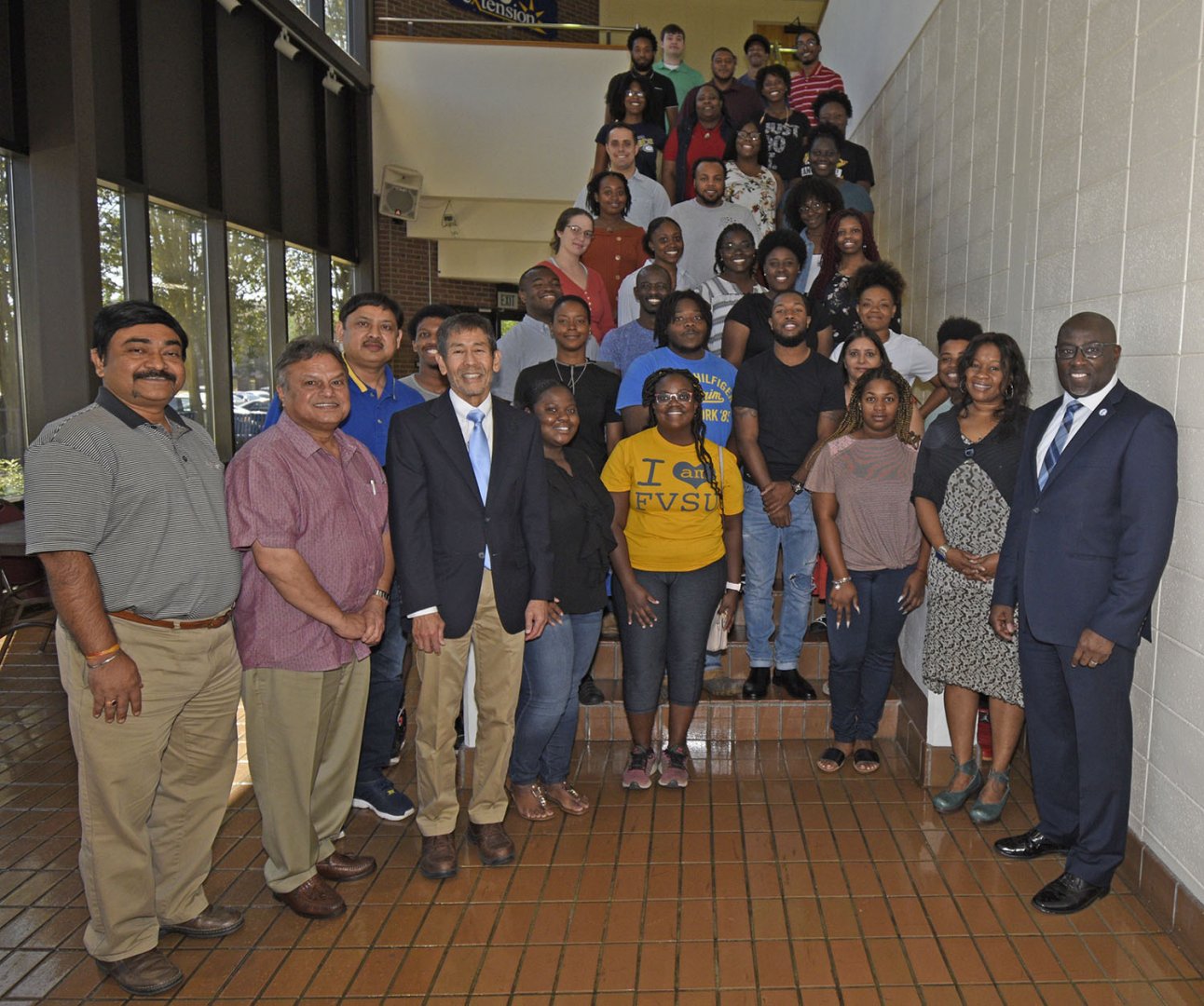Many Historically Black Colleges and Universities (HBCUs) are creating pathway programs that connect students with top graduate programs at major research universities.
Being no stranger to this concept, more than 35 Fort Valley State University students received first-hand information about the Plant Agricultural Biology Graduate Admission Pathway (PABGAP) program during a recent seminar in the C.W. Pettigrew Center. A representative from the University of California Davis (UC-Davis) along with FVSU 2019 PABGAP participants presented information about the summer research experience.
PABGAP is a summer program for students attending FVSU and Tuskegee University. Selected participants partake in a summer enrichment program at UC-Davis. Participants receive eight weeks of mentoring on campus where they live at no cost.
During the eight weeks, they are immersed in lab work, attend workshops and participate in field trips and fun activities in the area. They also receive Graduate Records Examinations (GRE) prep and learn how to conduct presentations.
To participate, students must be a junior, senior or first-year graduate students studying life sciences such as biology or biotechnology. They must hold a 3.0 GPA and agree to complete specific courses before the summer. Students must also have a letter of recommendation, submit a statement of purpose along with college transcripts.
Upon acceptance, selected participants receive free travel to California, free lodging and meals. They also receive mentoring before and after the process. At the program’s ending, funding is available for one family member’s visit to California.
Dr. John Harada, a professor in the Department of Plant Biology College of Biological Sciences at UC-Davis, spoke to students during the seminar. He said PABGAP was created to set up pipelines between HBCU’S and the University of California.
“We wanted a program that focused on plants and agriculture. Fort Valley State and Tuskegee were a natural fit,” Harada said.
The UC-Davis faculty member said the goal is to try to increase the numbers of minority students to have a more diverse workforce. “I think if we bring diverse groups together, we can come up with solutions that solve problems like food security,” Harada said.
Dr. Sarwan Dhir, FVSU plant biotechnology professor and director of the Center for Biotechnology, said the collaboration has helped more than ten undergraduate and graduate students to conduct research at major research institutions and resulted in securing funds from federal agencies.
“Conducting and presenting award-winning research at the undergraduate level is vital to the success of students in graduate or professional school. I will continue to encourage them in their academic careers,” Dhir said.
In addition to faculty, students who participated in the 2019 PABGAP program shared their experiences.
Sheriff-Seedy Phaal, an FVSU second-year biotechnology graduate student, said his summer experience was phenomenal. The Gambia native has an interest in medicinal plants and spent his summer studying pomegranates. He said his experience at U.C. Davis confirmed his decision to obtain a Ph.D. once he completes his graduate degree at FVSU.
“I’m not sure if I want to go into industry, but my main goal is to be able to work with small farmers in the Gambia or other areas where people need a lot of help,” Phaal said.
Bryshal Moore, a 27-year-old FVSU biotechnology graduate student, studied tomato plants during her 2019 PABGAP summer experience. The Mobile, Alabama native has a desire to earn a Ph.D. and work in the industry once completing her education.
The PABGAP program is funded through a $300,000 grant provided by the University of California System. The program is in its fourth year and accepting applicants for summer 2020. For more information about PABGAP, visit https://bit.ly/2IjzKxG or contact Dr. Dhir at (478) 822-1057 or dhirs0@fvsu.edu.

